Fueling your fitness routine with the right pre-workout nutrition can make a significant difference in your performance and results.
In this article, we’ll explore the essential components of pre-workout nutrition, the best foods to eat, the optimal timing for your meals, and how to avoid common mistakes.
By understanding and implementing these strategies, you’ll be well on your way to achieving your fitness goals.
Understanding Pre-Workout Nutrition
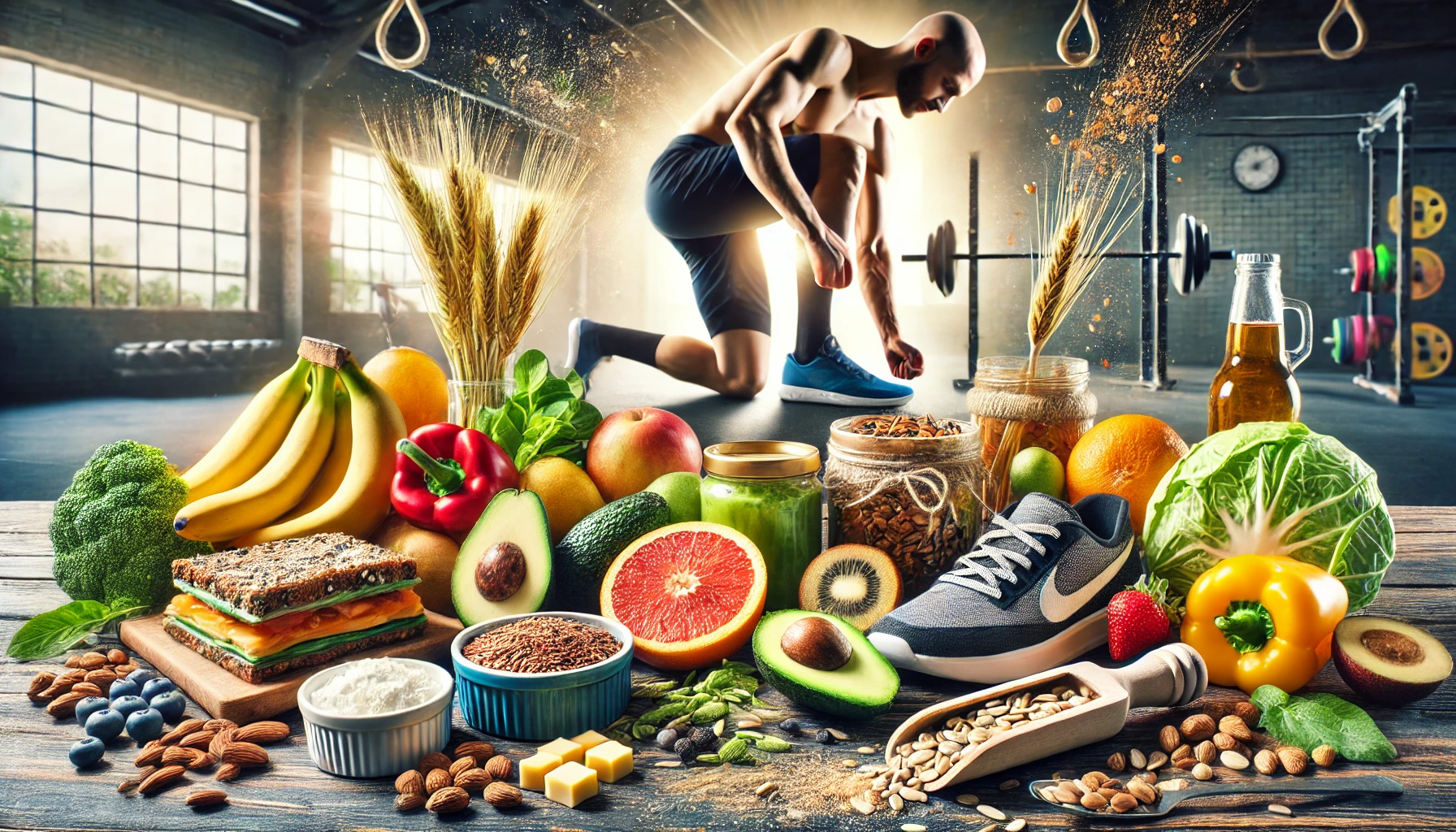
Proper pre-workout nutrition is crucial for maximizing your exercise performance and recovery.
The right nutrients can provide the energy you need, enhance muscle growth, and improve endurance. Let’s delve into the key components of effective pre-workout nutrition.
Importance of Pre-Workout Nutrition
Pre-workout nutrition plays a vital role in preparing your body for intense physical activity. Consuming the right foods before a workout can:
- Increase energy levels
- Improve performance and endurance
- Enhance muscle protein synthesis
- Speed up recovery
Key Components of Effective Pre-Workout Meals
A well-balanced pre-workout meal should include:
- Carbohydrates: Carbs are the primary source of energy for your muscles. They help replenish glycogen stores, which can become depleted during exercise. Good sources include whole grains, fruits, and vegetables.
- Proteins: Protein is essential for muscle repair and growth. Including protein in your pre-workout meal can help improve muscle protein synthesis and prevent muscle breakdown. Consider lean meats, dairy products, or plant-based proteins.
- Fats: While fats are a slower source of energy compared to carbs, they are still important for long-duration, low-intensity exercise. Healthy fats can be found in nuts, seeds, avocados, and olive oil.
For more detailed information on pre-workout nutrition, check out this comprehensive guide on pre-workout myths and truths.
By understanding the importance of each nutrient and how they contribute to your workout, you can tailor your pre-workout meals to optimize performance.
Top Foods for Pre-Workout Energy
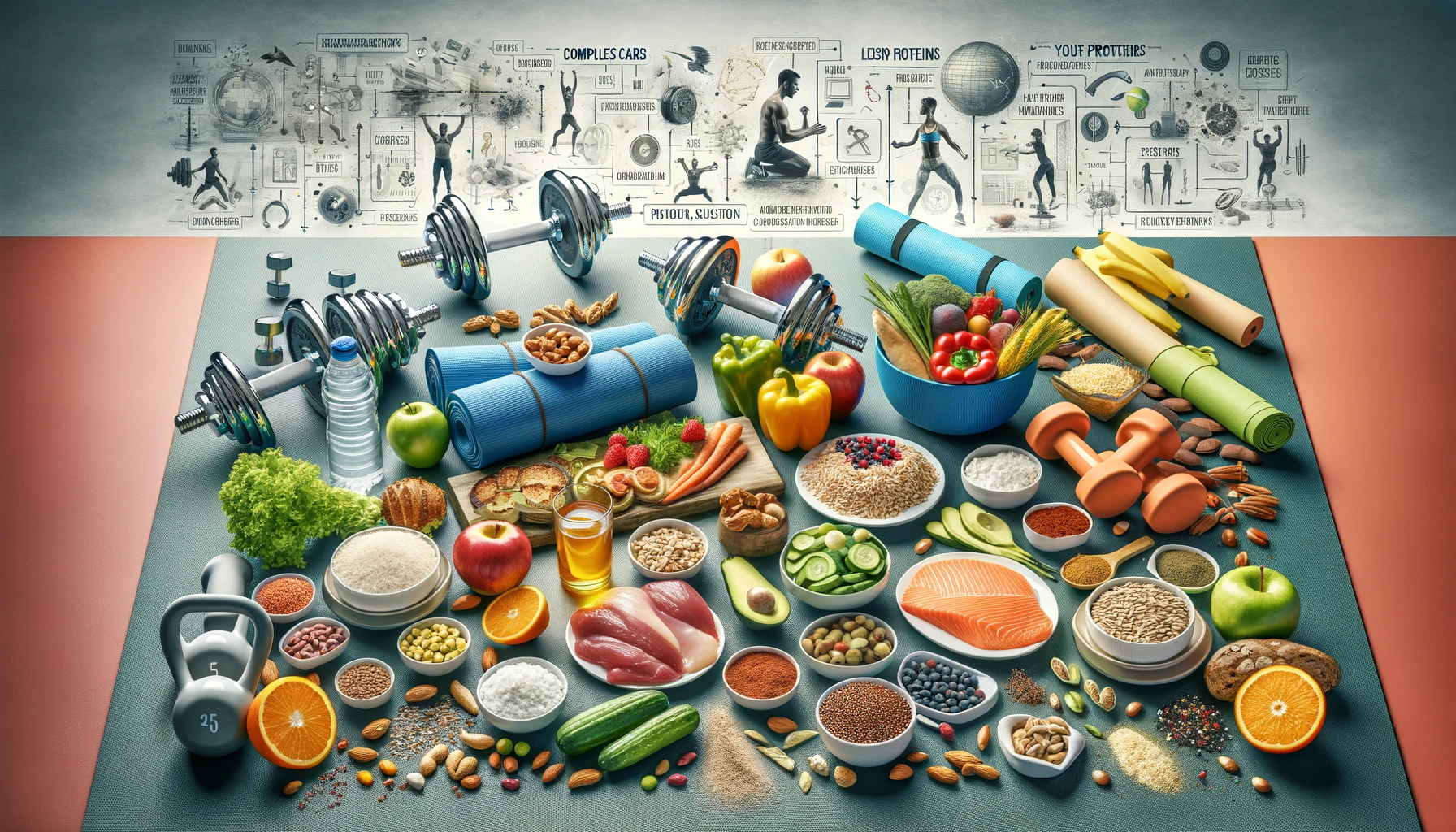
The food you eat before a workout can have a significant impact on your performance.
Consuming the right nutrients will provide sustained energy, enhance muscle function, and improve endurance.
Here are some of the best foods to include in your pre-workout meal.
Carbohydrates: Benefits and Best Sources
Carbohydrates are crucial because they provide the primary source of energy for your muscles.
They help maintain blood glucose levels during exercise and replenish muscle glycogen stores, which can become depleted.
- Oats: Oats are a great source of complex carbohydrates, which provide sustained energy. They also contain fiber, which helps to regulate digestion.
- Bananas: Bananas are rich in quick-digesting carbs and potassium, which can help prevent muscle cramps.
- Sweet Potatoes: Sweet potatoes are another excellent source of complex carbs and are packed with vitamins and minerals.
Proteins: Importance and Best Sources
Including protein in your pre-workout meal is essential for muscle repair and growth.
Protein helps to improve muscle protein synthesis and can enhance recovery.
- Chicken Breast: Lean and rich in protein, chicken breast is ideal for muscle growth and repair.
- Greek Yogurt: Greek yogurt is high in protein and also provides probiotics, which can aid in digestion.
- Quinoa: Quinoa is a complete protein source, containing all nine essential amino acids, making it a perfect plant-based option.
Fats: Role and Best Sources
Healthy fats provide a slow, sustained energy source and are crucial for longer workouts.
While they digest slower than carbs, they are still vital for overall energy needs.
- Avocados: Avocados are rich in healthy monounsaturated fats and also provide fiber and potassium.
- Nuts and Seeds: Nuts and seeds are great sources of healthy fats and also contain protein and fiber.
- Olive Oil: Olive oil is a healthy fat that can be added to various pre-workout meals.
For more insights into how different foods can boost your pre-workout energy, you can read this comprehensive guide on pre-workout stimulants.
By incorporating these foods into your pre-workout nutrition plan, you can ensure you have the energy and nutrients needed to perform at your best.
Timing Your Pre-Workout Meal
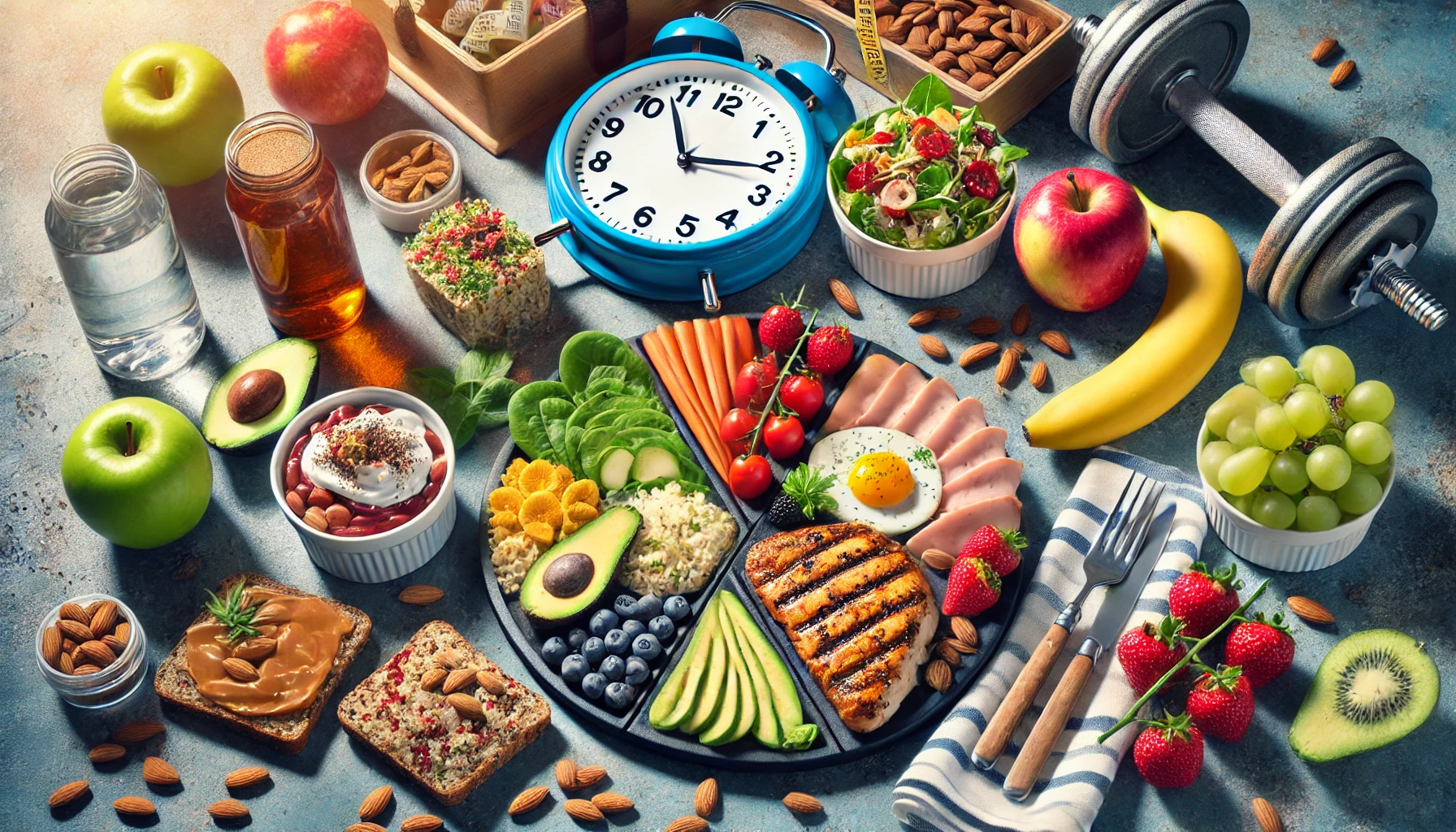
The timing of your pre-workout meal is just as important as the meal itself.
Eating at the right time ensures that your body has the necessary nutrients available during your workout, enhancing performance and reducing fatigue.
Best Times to Eat Before a Workout
The ideal timing for your pre-workout meal depends on the type of workout and your personal preferences.
Generally, it’s best to eat a balanced meal 2-3 hours before exercising.
If you’re short on time, a smaller snack 30-60 minutes before your workout can also be beneficial.
- 2-3 Hours Before Workout: A full meal that includes a balance of carbs, proteins, and fats. This allows enough time for digestion and nutrient absorption.
- 30-60 Minutes Before Workout: A light snack that’s easy to digest, focusing more on carbs and proteins. This provides a quick source of energy without causing discomfort.
Examples of Meals and Snacks
- 2-3 Hours Before Workout:
- Grilled chicken with brown rice and vegetables
- Whole grain bread with turkey and avocado
- Quinoa salad with chickpeas and mixed greens
- 30-60 Minutes Before Workout:
- A banana with a handful of almonds
- Greek yogurt with berries
- An apple with peanut butter
For more tips on timing your pre-workout meals and avoiding common pitfalls, check out this article on pre-workout tips.
By timing your meals correctly, you can maximize your energy levels and ensure that your body is ready for the demands of your workout.
Hydration Tips for Optimal Performance
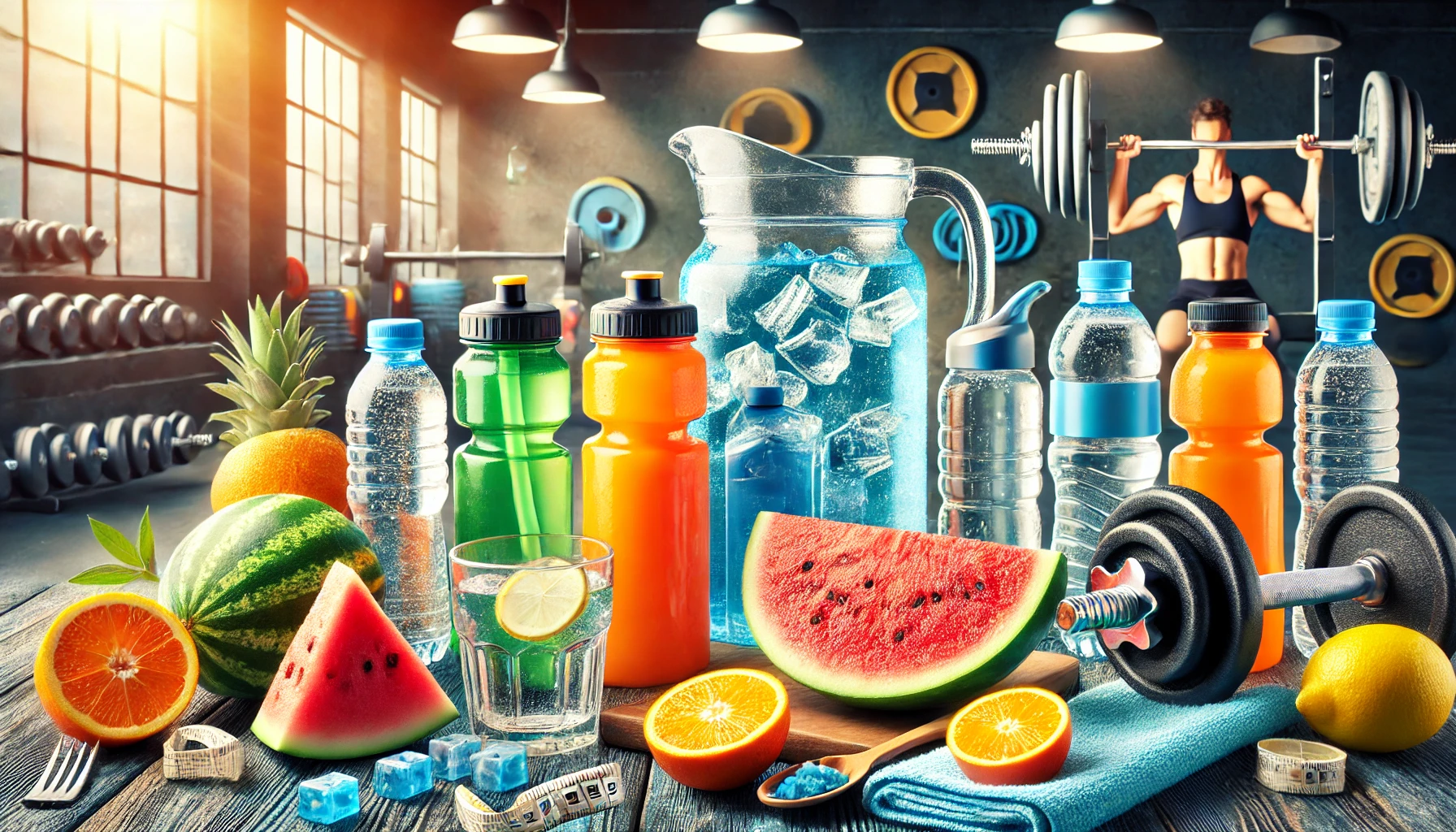
Staying hydrated is essential for maintaining optimal performance during your workouts.
Proper hydration helps regulate body temperature, lubricates joints, and transports nutrients to give you the energy and endurance you need.
Importance of Hydration
Hydration affects your physical performance more than you might realize.
Even mild dehydration can lead to reduced strength, power, and endurance. It’s crucial to start your workout well-hydrated and continue drinking fluids throughout your exercise routine.
- Regulates body temperature: Helps maintain an optimal core temperature, especially during intense workouts.
- Lubricates joints: Ensures your joints are well-lubricated, reducing the risk of injury.
- Transports nutrients: Efficiently transports essential nutrients to your muscles and other tissues.
How Much and When to Drink

The amount of water you need can vary based on several factors, including the intensity and duration of your workout, your body size, and the environment.
However, general guidelines can help ensure you stay hydrated:
- Before Workout:
- Drink 16-20 ounces of water at least four hours before exercising.
- Drink another 8-10 ounces about 20-30 minutes before your workout.
- During Workout:
- Aim to drink 7-10 ounces of water every 10-20 minutes during exercise.
- For workouts lasting more than an hour, consider a sports drink to replenish electrolytes.
- After Workout:
- Drink 16-24 ounces of water for every pound of body weight lost during exercise to rehydrate.
For more detailed information on how to boost your hydration and performance safely, you can read this article on enhancing pre-workout potency.
By following these hydration tips, you can ensure that you stay well-hydrated and maintain peak performance during your workouts.
Supplements to Enhance Your Workout
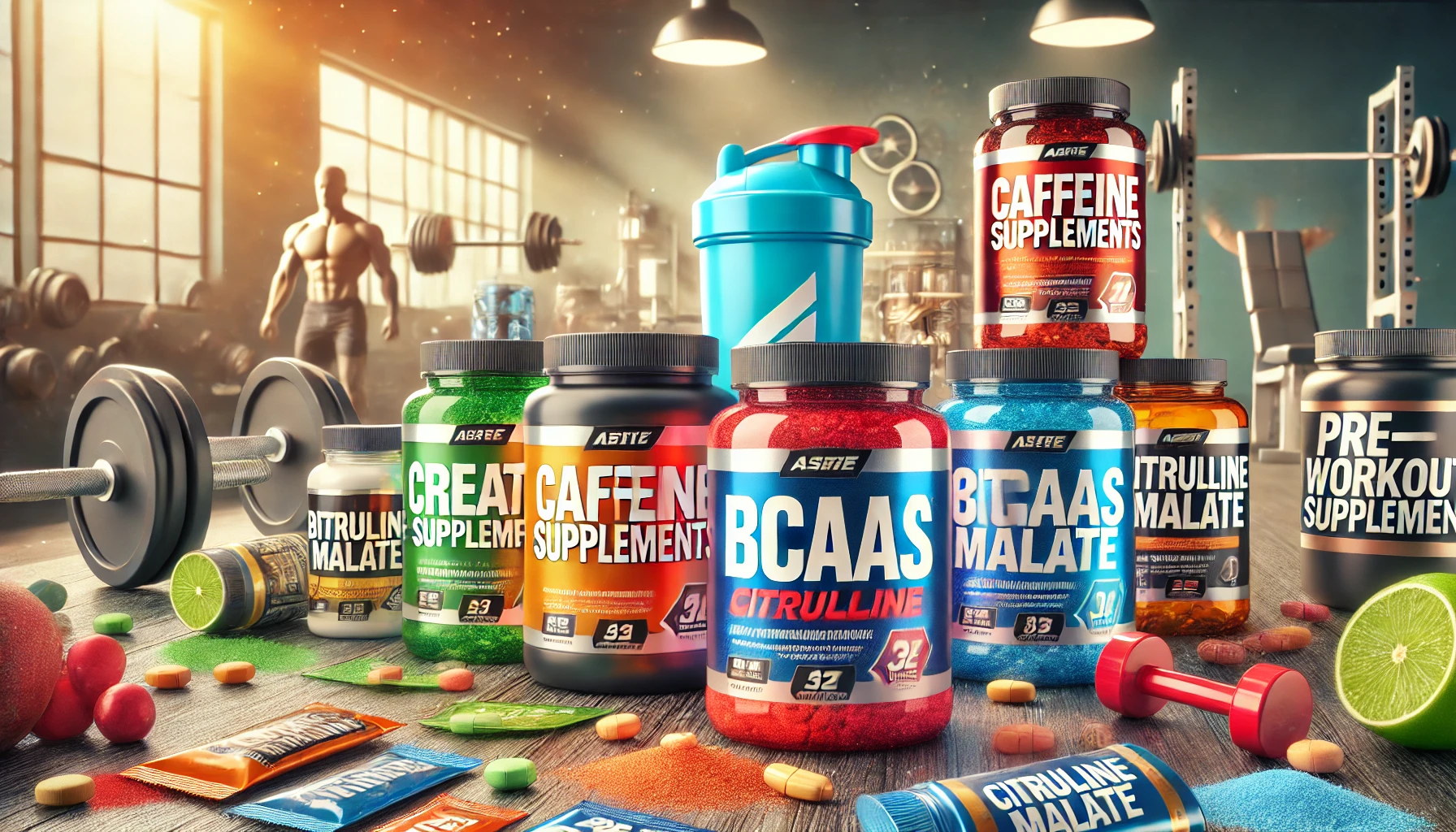
In addition to a balanced diet and proper hydration, certain supplements can further enhance your workout performance.
These supplements can provide additional energy, improve endurance, and aid in recovery, ensuring you get the most out of your exercise routine.
Overview of Effective Pre-Workout Supplements
There are various pre-workout supplements available, each designed to support different aspects of your workout.
Here are some of the most effective ones:
- Creatine: Known for its ability to increase muscle mass, strength, and exercise performance. Creatine helps produce more ATP (adenosine triphosphate), which is essential for energy during high-intensity workouts.
- Caffeine: A powerful stimulant that can enhance focus, increase alertness, and improve endurance. Caffeine is commonly found in many pre-workout formulas.
- Beta-Alanine: Helps buffer acid in muscles, reducing fatigue and increasing exercise performance. It is particularly effective for high-intensity, short-duration exercises.
- Branched-Chain Amino Acids (BCAAs): Consist of three essential amino acids – leucine, isoleucine, and valine. BCAAs can reduce muscle soreness and improve muscle recovery.
- Citrulline Malate: Increases blood flow to the muscles, improving oxygen and nutrient delivery. This can enhance muscle performance and reduce fatigue.
Benefits and Potential Side Effects
While pre-workout supplements can be beneficial, it’s essential to be aware of their potential side effects:
- Creatine: Generally safe, but may cause weight gain due to water retention and, in rare cases, digestive issues.
- Caffeine: Can cause jitteriness, increased heart rate, and insomnia if taken in high doses.
- Beta-Alanine: May cause a tingling sensation on the skin, known as paresthesia, which is harmless but can be uncomfortable.
- BCAAs: Usually safe, but excessive intake can lead to nausea or headaches.
- Citrulline Malate: Typically well-tolerated, but can cause stomach discomfort in some individuals.
For more detailed information on how to safely and effectively use pre-workout supplements, check out this article on maximizing muscle pump with science-backed strategies.
By incorporating the right supplements into your routine, you can enhance your workout performance and achieve your fitness goals more efficiently.
Avoiding Common Pre-Workout Mistakes
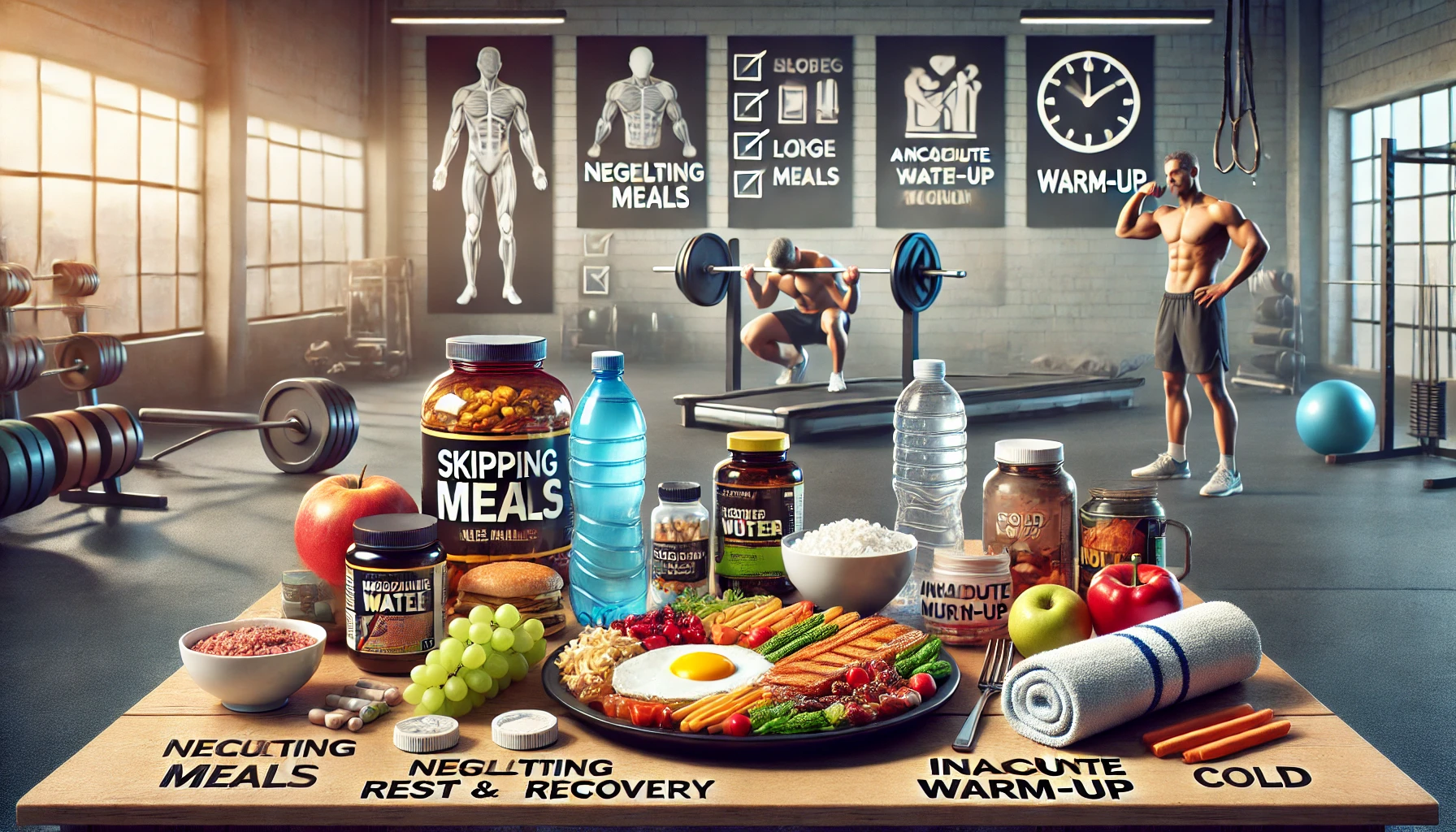
Even with the best nutrition and supplements, certain mistakes can hinder your performance and progress.
Avoiding these common pre-workout errors can help you maximize your workout efficiency and achieve better results.
Mistakes to Avoid for Better Performance
- Skipping the Pre-Workout Meal: Not eating before a workout can leave you feeling fatigued and weak, reducing your exercise performance. Always ensure you have a balanced meal or snack before your workout.
- Overeating or Eating the Wrong Foods: Eating a large meal or foods that are hard to digest too close to your workout can cause discomfort and sluggishness. Stick to easy-to-digest, nutrient-rich foods.
- Neglecting Hydration: Starting your workout dehydrated can significantly impact your performance. Make sure to hydrate properly before, during, and after your workout.
- Using New Supplements on Workout Day: Introducing a new supplement on the day of a workout can lead to unexpected side effects. Always test new supplements on a non-workout day to see how your body reacts.
- Ignoring Rest and Recovery: Overtraining without adequate rest can lead to burnout and injury. Ensure you have a proper balance of workout intensity and recovery periods.
- Inadequate Warm-Up: Jumping straight into intense exercise without a proper warm-up can increase the risk of injury. Spend at least 5-10 minutes warming up your muscles and joints.
Practical Tips for Effective Pre-Workout Nutrition
- Plan Your Meals: Schedule your meals and snacks based on your workout timing. This ensures you have enough energy without feeling too full.
- Stay Consistent: Stick to a pre-workout routine that works for you. Consistency helps your body adapt and perform better.
- Listen to Your Body: Pay attention to how your body responds to different foods and supplements. Adjust your pre-workout nutrition based on what makes you feel the best.
For more practical tips on avoiding pre-workout mistakes and improving your overall performance, check out this comprehensive guide on boosting pre-workout potency.
By steering clear of these common mistakes and implementing effective pre-workout strategies, you can enhance your performance and reach your fitness goals more effectively.
Summary and Key Takeaways
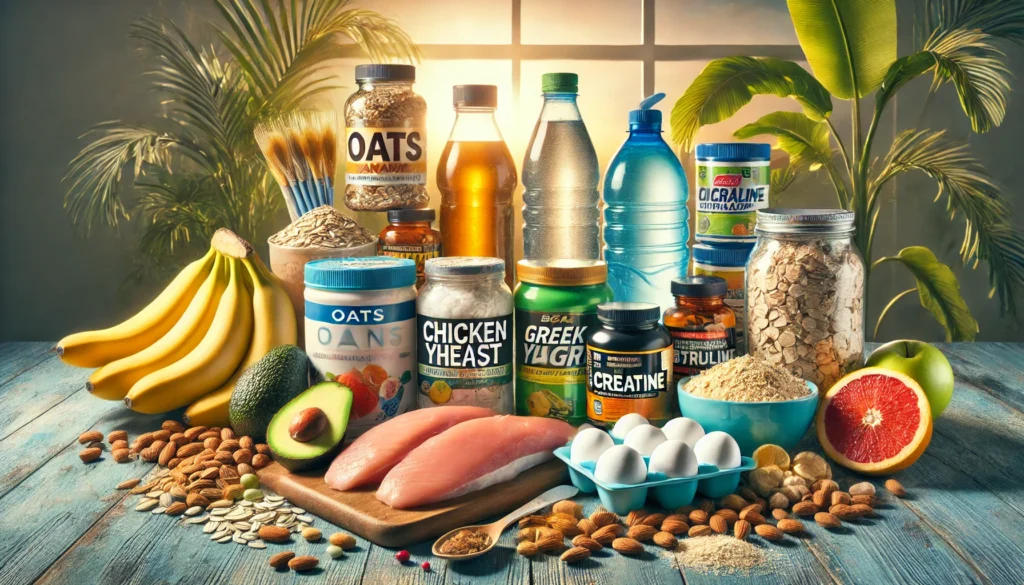
Proper pre-workout nutrition, hydration, and supplementation are crucial for maximizing your workout performance and achieving your fitness goals. Let’s recap the main points discussed in this article:
Key Takeaways:
- Understand the Importance of Pre-Workout Nutrition: Consuming the right nutrients before your workout can increase energy levels, improve performance, and aid in muscle recovery. Focus on a balanced intake of carbohydrates, proteins, and fats.
- Choose the Right Foods for Energy: Incorporate foods that provide sustained energy and support muscle function, such as oats, bananas, chicken breast, Greek yogurt, avocados, and nuts. These foods will help fuel your workouts effectively.
- Timing Matters: Schedule your meals and snacks appropriately. Eat a full meal 2-3 hours before working out or a light snack 30-60 minutes prior. This timing ensures that your body has enough energy without feeling too full or sluggish.
- Stay Hydrated: Proper hydration is essential for optimal performance. Drink adequate water before, during, and after your workout to maintain energy levels and prevent dehydration.
- Use Supplements Wisely: Supplements like creatine, caffeine, beta-alanine, BCAAs, and citrulline malate can enhance your performance when used correctly. Be aware of potential side effects and test new supplements on non-workout days.
- Avoid Common Pre-Workout Mistakes: Skipping meals, overeating, neglecting hydration, trying new supplements on workout days, ignoring rest, and inadequate warm-ups can hinder your performance. Implement practical strategies to avoid these pitfalls.
By following these tips and integrating them into your routine, you can optimize your pre-workout nutrition and significantly improve your workout performance.
For more detailed information on how to fuel your fitness and enhance your workout results, visit this comprehensive guide on pre-workout meals for top performance.
